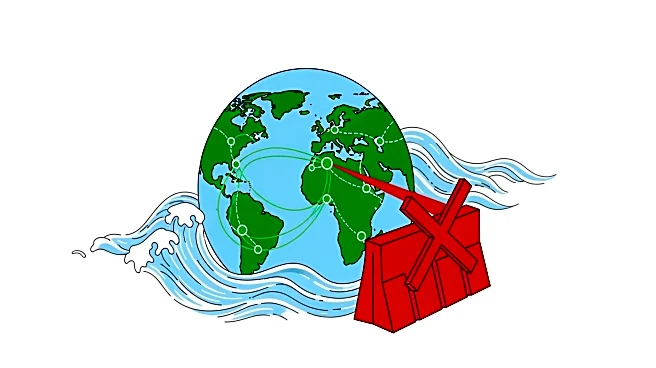What's Happening?
The International Maritime Organization (IMO) recently failed to reach an agreement on implementing a global carbon-pricing mechanism for the shipping industry. This proposal was part of the IMO's Net-Zero Framework, which aimed to impose a cost on carbon emissions
from ships and use the revenue to support cleaner fuels and infrastructure. The United States played a significant role in the collapse of this proposal, reportedly lobbying smaller member states against it by warning of potential trade and diplomatic repercussions. Saudi Arabia and a few allies supported the U.S. stance, arguing that the levy would threaten competitiveness. As a result, the decision was postponed for a year, marking another missed opportunity to align the maritime sector with global climate goals.
Why It's Important?
The failure to implement a carbon-pricing mechanism for shipping has significant implications for global climate efforts. Shipping accounts for approximately 3% of global greenhouse gas emissions, a figure comparable to major industrial nations. The absence of a carbon price delays investment in cleaner fuels and technologies, potentially locking in emissions for decades. This decision also highlights the challenges of achieving international cooperation on climate issues, as different nations prioritize their economic interests over collective environmental goals. The U.S. opposition reflects a broader ideological divide on how to manage shared resources, with potential long-term consequences for global climate policy and economic competitiveness.
What's Next?
The postponement of the carbon-pricing decision means that the IMO will revisit the proposal in a year. In the meantime, regional systems like the European Union's Emissions Trading Scheme may gain prominence, leading to fragmented regulation and increased costs. The delay also puts pressure on land-based sectors to compensate for the shipping industry's emissions. Stakeholders, including environmental groups and nations vulnerable to climate change, are likely to continue advocating for stronger international measures. The U.S. position may face scrutiny from both domestic and international actors who support more aggressive climate action.
Beyond the Headlines
This development underscores the complexity of global governance in addressing climate change. The U.S. stance at the IMO reflects a broader narrative that views environmental measures as economic threats rather than opportunities for stewardship. This perspective can hinder collective action and exacerbate the tragedy of the commons, where individual interests undermine shared resources. The situation also highlights the need for a shared definition of fairness in global climate policy, as differing national interests and ideologies continue to impede progress.
















